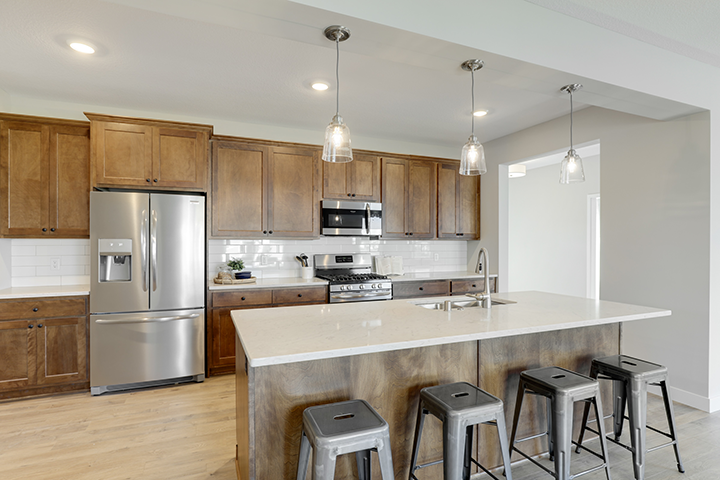
Pros and Cons of Gas VS. Electric
The kitchen is often considered the heart of the home. It doesn’t matter if you are a cook or not, you’ll likely visit your kitchen many times a day. That makes designing your kitchen all the more important, and one aspect to design and function is choosing the right appliances for you. Among your many choices you’ll have to make the decision of a gas range and oven vs and electric range and oven. But what is the difference really?
Cooking
Cooking is a little different on each. Gas is often preferred by cooks because of the evenness of the cook and the quick cooking time. You are looking at a gas range being ready to cook on immediately verses the 10 minutes it may take an electric stovetop to heat up. The preheat time for an electric oven is about double that of a gas oven. Gas also tends to cook food quicker. Finally, the two options offer different types of heat, with gas being considered moister. That means is you prefer more help in keeping your dishes from drying out, choose gas. If you like that crisp crunch, choose electric.
One benefit electric has over gas is in cooking at lower temperatures. Electric is easier to control and often has more features than gas. After all, cooking with gas means that you are controlling a flame. While you can make it larger and smaller, the temperature can only go so low.
One final benefit gas has for cooking concerns power outages. You will still be able to cook on most gas models if the power goes out where it is unlikely an electric model will still operate.
Cleaning
Electric ranges are often completely flat with a glass top. Although you should check your owners manual for any special cleaning instructions, electric ranges are often easier to clean. The one downside to cleaning electric ranges is that if it has a glass top, you’ll want to be a little more careful. Glass tends to stain easier and is can be really hard to remove burnt sugar from the surface.
Cost
There are so many things to consider concerning the cost of gas verses electric. Electric is often considered cheaper, but that is mainly to do with the installation cost of gas appliances. If you choose a gas range before you build your house, you may eliminate some of the installation costs you would have if you choose to add it later.
The next cost you have to consider is operating costs. Gas is much more energy efficient than electric. It takes about three times as much energy to heat an electric stove versus a gas stove. That cost will show up in your utility bills later. It works out to about $14 per year for gas compared to $44 per year for electric (based on 30 minutes of daily use).
Finally, the last cost you need to consider is how long the appliances will last. Because glass stains and scratches more easily and there are more parts that have to work right in an electric stove/range, gas tends to last longer.
Safety
There is no getting around it. Electric is considered the safer of the two. If you get gas, there is aways the chance of a gas leak. If the pilot doesn’t light and the gas is left on, the gas will build up in your kitchen, increasing the chance of an explosion. Plus, because of its flatter surface, electric stovetops may be easier to balance pans on, which may translate to less spills. On the other hand, just like a gas stove or range heats up quickly, it also cools down quickly. That means there is less of a chance to get burned after the oven is turned off. Overall, gas is considered mostly safe while electric is considered very safe.
There are pros and cons to both gas and electric models. It really depends on what works for you and what you will be more comfortable with.
 Thorson Homes
Thorson Homes
Recent Posts
Recent Comments
Archives
Categories